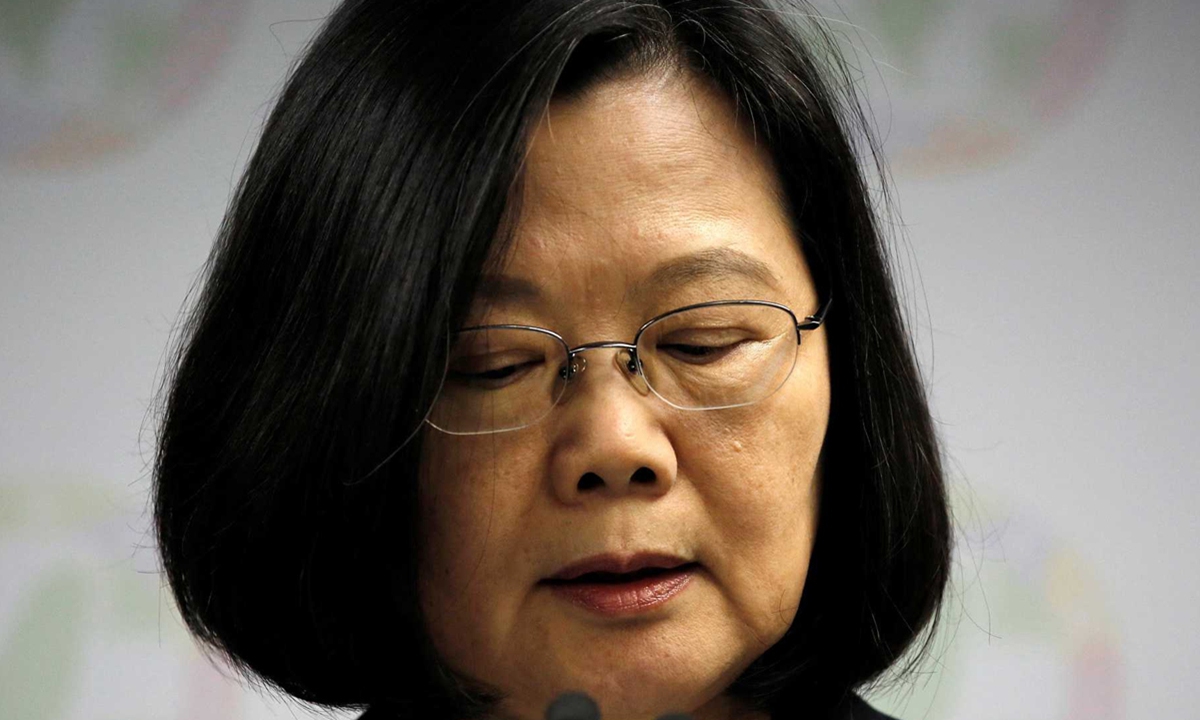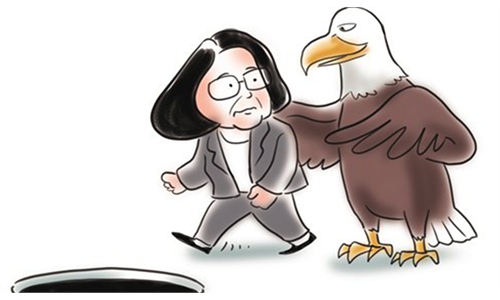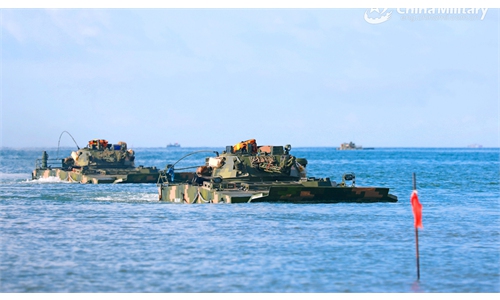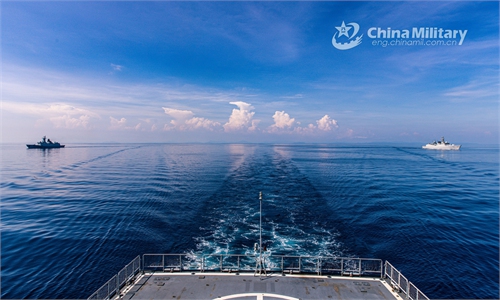
Tsai Ing-wen Photo:VCG
On Wednesday, Taiwan's regional leader Tsai Ing-wen finally made a speech on the panic on the island triggered by Afghanistan's situation. She declared that Taiwan's only option is to make itself stronger, more united and more determined to defend itself. Just before Tsai's speech, US National Security Advisor Jake Sullivan on Tuesday responded to whether the US will abandon Taiwan. He said that "When it comes to Taiwan, it is a fundamentally different question in a different context" and the US' "commitment" to Taiwan remains "as strong as it's ever been."The statements of Sullivan and Tsai show the rapid collapse of the US-supported Afghan government has brought a real shock to the island. Both Washington and Democratic Progressive Party (DPP) authorities are diffident about this, and they believe it is necessary to calm the doubts.
However, the empty words of Sullivan and Tsai were predictable. They would inevitably say so, and had to say so. As to whether Taiwan will show resistance when the mainland uses force to unify the island one day, they did not offer any convincing additional information.
Will the US abandon Taiwan? Fundamentally speaking, this is a matter of time and situation, and it will not be decided by a few elites in the US and Taiwan. We believe that as long as the mainland's strength continues to grow, and as long as it prepares fully for military struggles and has a firm will to unify, then there is no doubt the US is doomed to eventually abandon Taiwan.
First, there is no official document in the US that requires it to send troops to defend Taiwan. Once it does, the US president and his administration will break the legal framework and engage in a strategic gamble of having a war with another major power. It would be an unprecedented war mobilization in the US since the end of World War II.
Second, China is a nuclear power with full preparedness for an offshore military struggle. This makes the US completely unsure of a victory in a cross-Straits war. In fact, the US military and academic communities are pessimistic about the result of a cross-Straits war. The US failed in all its main post-WWII wars in Asia. If it were to go to war with modern China, it would face a strong enemy it had never experienced before that would consume all its national strength.
Third, the DPP authorities are weaker and less motivated than the former Kuomintang authorities, not to mention the political split in the island. That is to say, the Taiwan authorities are lame ducks who are highly dependent on US protection. Tsai said that Taiwan will not just rely on others to protect it, but that is not heartfelt. The DPP authorities are gambling their fate solely on the condition that the US would not give up Taiwan for the sake of its grand strategy. They had never thought about, nor could they mobilize the whole island to fight and get defeated.
Fourth, what capital does the island of Taiwan have to make it different from Afghanistan? As long as the costs of supporting the Taiwan authorities far outweigh the benefits, the US will abandon the island immediately. In 1949, the US abandoned the Kuomintang as it saw the latter was not worth supporting. Then the US diplomatically abandoned the island of Taiwan in 1979 because having diplomatic ties with the mainland better met its interests during the Cold War against the Soviet Union. When it comes to defending Taiwan in a costly and unwinnable war, the US will choose the lesser of two evils and the American people will not allow their young generations to die in large numbers for Taiwan secession.
Fifth, US abandonment of Taiwan will be a move that acknowledges the change in power between China and the US. But it won't mean more losses for the US. Such a change cannot be concealed. To maintain the illusion that the US will continue backing the island will finally exhaust Washington as time goes on. Therefore, the US will eventually have to accept the reunification of the mainland and the island of Taiwan, even though it might be seen as a bitter fruit by Washington.
Sixth, when the situation is complex, realism will play a decisive role as dramatic changes take place in the Taiwan Straits. Once the mainland decides to unify by force, it will be unstoppable and destroy the capability and will of the island military to resist in a few hours. There will be a time gap for the US to react. With such a lag, a new cross-Straits situation will be quickly shaped and known to the world. If the US wants to change that new status quo through a war, it will have to bet its national fate. Washington has no reason to do so.
In a word, the Chinese mainland's determination to contain Taiwan secession and promote reunification won't budge. If the Taiwan authorities really view the so-called sovereign independence as the island's lifeline, then they should start now to mobilize people for war and multiply the military expenditure to increase combat capabilities. Given Taiwan society's obsession of "small but sure happiness" and fanatical about political infighting, the island's authorities are clearly thinking that they can achieve the goal of secession by enjoying the comfort under US protection. But it's time to wake up!



